Distinguished Faculty
 Prof. Metin Akay is currently the founding chair of the new Biomedical Engineering Department and the John S. Dunn professor of biomedical engineering at the University of Houston. He received his B.S. and M.S. in Electrical Engineering from the Bogazici University, Istanbul, Turkey in 1981 and 1984, respectively and a Ph.D. degree from Rutgers University in 1990. Dr. Akay has played a key role in promoting biomedical education in the world by writing and editing several books, editing several special issues of prestigious journals, including the Proc of IEEE, and giving more than hundred keynote, plenary and invited talks at international conferences, symposiums and workshops regarding emerging technologies in biomedical engineering.
Prof. Metin Akay is currently the founding chair of the new Biomedical Engineering Department and the John S. Dunn professor of biomedical engineering at the University of Houston. He received his B.S. and M.S. in Electrical Engineering from the Bogazici University, Istanbul, Turkey in 1981 and 1984, respectively and a Ph.D. degree from Rutgers University in 1990. Dr. Akay has played a key role in promoting biomedical education in the world by writing and editing several books, editing several special issues of prestigious journals, including the Proc of IEEE, and giving more than hundred keynote, plenary and invited talks at international conferences, symposiums and workshops regarding emerging technologies in biomedical engineering.
He is the founding editor-in-chief of the Biomedical Engineering Book Series published by the Wiley and IEEE Press and the Wiley Encyclopedia of Biomedical Engineering. He is also the editor of the Neural Engineering Handbook published by Wiley/IEEE Press and the first steering committee chair of the IEEE Trans on Computational Biology and Bioinformatics. He established the Annual International Summer School on Biocomplexity from Gene to System sponsored by the NSF and the IEEE EMBS and is the founding chair of the IEEE EMBS Special Topic Conference on Neural Engineering.
He is also the chair of the IEEE EMBS Neuroengineering Technical Committee. He was the program chair of the International IEEE EMBS 2001 and the co-chair of the Annual International IEEE EMBS 2006 and the program co-chair of the Annual International IEEE EMBS 2011 conference which held in Boston . He currently serves on the advisory board of several international journals and on several NIH and NSF review panels.
Dr. Akay is a recipient of the IEEE EMBS Early Career and Service awards as well an IEEE Third Millenium Medal and is a fellow of IEEE, the Institute of Physics (IOP), the American Institute of Medical Biological Engineering (AIMBE) and the American Association for the Advancement of Science (AAAS). His Neural Engineering and Informatics Lab is interested in developing an intelligent wearable system for monitoring motor functions in Post-Stroke Hemiplegic Patients and detecting coronary artery disease. In addition, his lab is currently investigating the effect of nicotine on the dynamics of ventral tegmental area (VTA) dopamine neural networks as well as the detection of coronary occlusions.
 Prof. Robert Allen is an Emeritus Professor in Biodynamics and Control at the Institute of Sound and Vibration Research (ISVR), University of Southampton, UK. Following training in the machine tool industry and a period as numerical control programme engineer (Dean, Smith & Grace Ltd., in collaboration with IBM UK) he studied at the University of Leeds and graduated with BSc (Hons) in Control Engineering and was awarded a PhD for research on modelling the dynamic characteristics of neural receptors. This was followed by Postdoctoral positions at the University of Leeds (Dept. Anaesthesia) on monitoring intracranial pressure of severely head-injured patients to prevent secondary brain damage, and at the Welsh National School of Medicine, Cardiff (Dept. Anaesthetics) on a parameter estimation approach to noninvasive measurement of cardiac output. He moved to the University of Southampton (Faculty of Medicine) in 1984 to a newly-created position as Lecturer in Biocomputation, and from there to the Department of Mechanical Engineering in 1985 as Lecturer and Senior Lecturer in Control Engineering and to the ISVR in 1997. He is founding Editor-in-Chief of 2 journals "Biomimetics & Bioinspiration; Learning from Nature" published by the Institute of Physics, and "Biomedical Signal Processing & Control" published by Elsevier. He is also Honorary Editor for "Medical Engineering and Physics" (Elsevier) and a member of the Mechatronic, Informatics and Control Committee of the Institution of Mechanical Engineers. He is a Chartered Engineer, Chartered Scientist and a Fellow of the Institution of Electrical Engineers, the Institution of Mechanical Engineers and the Institute of Physics and Engineering in Medicine. He is also a member of the Institute of Electrical and Electronics Engineers and the European Society of Biomechanics.
Prof. Robert Allen is an Emeritus Professor in Biodynamics and Control at the Institute of Sound and Vibration Research (ISVR), University of Southampton, UK. Following training in the machine tool industry and a period as numerical control programme engineer (Dean, Smith & Grace Ltd., in collaboration with IBM UK) he studied at the University of Leeds and graduated with BSc (Hons) in Control Engineering and was awarded a PhD for research on modelling the dynamic characteristics of neural receptors. This was followed by Postdoctoral positions at the University of Leeds (Dept. Anaesthesia) on monitoring intracranial pressure of severely head-injured patients to prevent secondary brain damage, and at the Welsh National School of Medicine, Cardiff (Dept. Anaesthetics) on a parameter estimation approach to noninvasive measurement of cardiac output. He moved to the University of Southampton (Faculty of Medicine) in 1984 to a newly-created position as Lecturer in Biocomputation, and from there to the Department of Mechanical Engineering in 1985 as Lecturer and Senior Lecturer in Control Engineering and to the ISVR in 1997. He is founding Editor-in-Chief of 2 journals "Biomimetics & Bioinspiration; Learning from Nature" published by the Institute of Physics, and "Biomedical Signal Processing & Control" published by Elsevier. He is also Honorary Editor for "Medical Engineering and Physics" (Elsevier) and a member of the Mechatronic, Informatics and Control Committee of the Institution of Mechanical Engineers. He is a Chartered Engineer, Chartered Scientist and a Fellow of the Institution of Electrical Engineers, the Institution of Mechanical Engineers and the Institute of Physics and Engineering in Medicine. He is also a member of the Institute of Electrical and Electronics Engineers and the European Society of Biomechanics.
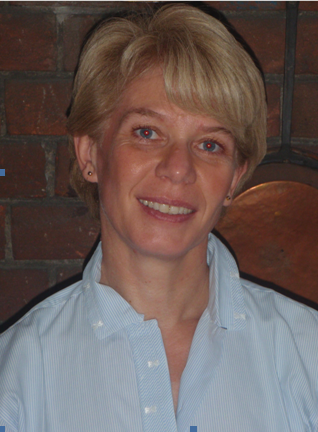 Prof. Anna M. Bianchi, Associate Professor at the Department of Bioengineering of the Politecnico di Milano
Prof. Anna M. Bianchi, Associate Professor at the Department of Bioengineering of the Politecnico di Milano
Positions held: 2001-2010 Assistant Professor at the Department of Bioengineering of the Politecnico di Milano; 1990-2000 Research assistant, IRCCS S. Raffaele Hospital, Milano; 1987-1989 Research fellow, IRCCS S. Raffaele Hospital, Milano.
The research interests of Anna Maria Bianchi are mainly related to the processing of biomedical signals aimed at improving their information content, achieve new relevant information through proper methodological techniques, define new interprwound-imagesive models of the biological systems and phenomena under examination. In particular she worked on parametric models applied to the description and interprwound-imagesion of the signals related to the cardiovascular and the neurosensorial systems. The study of the models was extended to the multivariate form in order to put into evidence interrelations among signals and subsystems. In the analysis of the beat-to-beat variability in cardiovascular signals, cardiorespiratory coupling in physiological and pathological conditions is one of the applications.
Other applications in the cardiovascular field, are mainly focused on control models of the principal variables and the autonomic regulation (heart rate, blood pressure, respiration, etc,). In the study of the neurosensorial system, the multiparametric models have been applied to the estimation of the single sweep responses of the evoked potentials, in single and multichannel EEG recordings (EEG and EP mapping) In addition, multivariate models have been developed for the quantification of mutual interactions of signals, such as multi-channel EEG recordings, in order to estimate the information flow in the brain and to explore the mechanisms underlying cognitive and motor processes.
In order to deal with non-stationary conditions, very common in biological system, and for providing an interprwound-imagesion of transient phenomena, time-frequency and time-variant approaches implementation of the parametric models have been studied. The theoretical aspects were faced first, including different methodologies related to the time-frequency and time-scale representation of the signals: adaptive parametric models, time-frequency distributions, wavelet decomposition, empirical mode decomposition. In the cardiovascular fields this allowed the study of the mechanisms underlying the vasovagal syncope, the response to drug infusion, the transition among sleep stages and, in general, were applied in the studies of the dynamical behavior of the cardiovascular system.
In the neurosensorial field the time-frequency analysis was used for the evaluation of the dynamical interactions in the EEG channels in particular situations such as learning, attention, anesthesia, motor tasks in normal subjects and in patients affected by epilepsy, dyslexia or other disfunctions.
Indices of non-linear synchronization have also been developed (entropy parameters, and long term correlation analysys, bispectral and cross-bispectral indices, clustering parameters, etc.).
Recently synchronization analysis was extended to the study of the temporal evolution of the BOLD signals extracted from fMRI acquisitions, in language studies and in epilepsy for the estimation of the effective connectivity according to the Granger apprach.
Techniques of multimodal integration for the data and image fusion are another topic of the research with application in the functional investigation of the brain. In particular methodology have been developed for the fusion of multichannel EEG, anatomical MRI, functional MRI, NIRS (Near InfraRed Spectroscopy) data in different physiological and pathological conditions.
Part of the research is also focused on the interactions between the central nervous system and the autonomic nervous system, with specific application to sleep studies and to cognitive tasks.
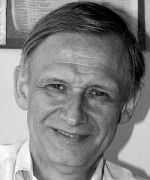 Prof. Sergio Cerutti, Professor in Biomedical Signal and Data Processing at the Department of Biomedical Engineering of the Politecnico di Milano, Italy. He has been the Chairman of the same Department from 2000 to 2006. His research interests are mainly in the following topics: biomedical signal processing (ECG, blood pressure signal and respiration, cardiovascular variability signals, EEG and evoked potentials), cardiovascular modelling, neurosciences, regulation and standards in medical equipments and devices.
Prof. Sergio Cerutti, Professor in Biomedical Signal and Data Processing at the Department of Biomedical Engineering of the Politecnico di Milano, Italy. He has been the Chairman of the same Department from 2000 to 2006. His research interests are mainly in the following topics: biomedical signal processing (ECG, blood pressure signal and respiration, cardiovascular variability signals, EEG and evoked potentials), cardiovascular modelling, neurosciences, regulation and standards in medical equipments and devices.
Since 1983 he has taught a course at a graduate level on Biomedical Signal Processing at Engineering Faculties (Milano and Roma) as well as at Specialisation Schools of Medical Faculties (Milano and Roma). He has been Elected Member of IEEE-EMBS AdCom (Region 8) in the period 1993-1996. He is actually Fellow Member of IEEE and of EAMBES and Associate Editor of IEEE Trans BME. He is a member of the Steering Committee of the IEEE-EMBS Summer School on Biomedical Signal Processing: he was the local organiser of four Summer Schools held in Siena. He is author of more than 400 international scientific contributions (more than 160 on indexed scientific journals).
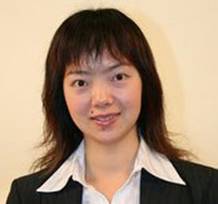 Dr. Wei Chen is assistant professor at the Designed Intelligence Group, Department of Industrial Design, Eindhoven University of Technology with research interest in Ambient intelligence design, health monitoring with wearable sensors, smart sensor systems, signal processing. She is Associate editor of IEEE Journal of Biomedical and Health Informatics (J-BHI) and she was the member of several technical committeess related to international conferences - Member of Technical Program Committee for ISCI 2013 (2013 IEEE Symposium on Computers & Informatics), Member of Technical Program Committee for PIMRC 2013 (IEEE 22nd International Symposium on Personal, Indoor and Mobile Radio Communications). She is involved in research of Smart Wearable Medical Devices for Monitoring Cardiovascular Health of Elderly at Home and in neonatal monitoring technologies.
Dr. Wei Chen is assistant professor at the Designed Intelligence Group, Department of Industrial Design, Eindhoven University of Technology with research interest in Ambient intelligence design, health monitoring with wearable sensors, smart sensor systems, signal processing. She is Associate editor of IEEE Journal of Biomedical and Health Informatics (J-BHI) and she was the member of several technical committeess related to international conferences - Member of Technical Program Committee for ISCI 2013 (2013 IEEE Symposium on Computers & Informatics), Member of Technical Program Committee for PIMRC 2013 (IEEE 22nd International Symposium on Personal, Indoor and Mobile Radio Communications). She is involved in research of Smart Wearable Medical Devices for Monitoring Cardiovascular Health of Elderly at Home and in neonatal monitoring technologies.
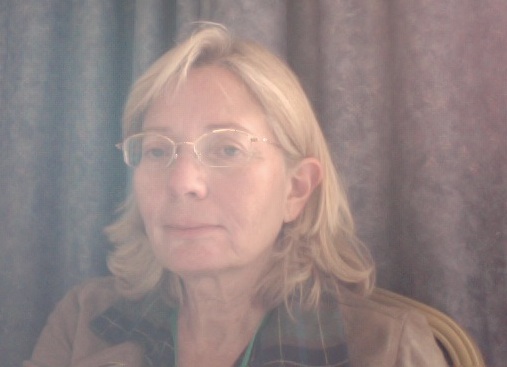 prof. Catherine Garbay (born 28/12/1954), received her Ph.D. degree in computer science in 1979. She joined the CNRS in 1980 where she is Research Director. She was deputy director of the LIG from 2007 to 2011. She has shared several responsibilities (head of the national research network I3 "Information, Interaction, Intelligence", 1998-2001; adjunct director of the CNRS scientific directorate "Information and Communication Science and Technology", 2001-2004) and has been acting as expert for various institutions (IST-FET-Open, 2004-2005; Cognitive Systems call, 6th PCRD; Networked Media and 3D Internet, ICT-2009.4 call; 7th PCRD, head of the ANR DEFI program evaluation committee). Her research interests include multi-agent system design and man-machine communication with applications to medical signal and image interprwound-imagesion. She has been more recently involved in the design of normative multi-agent system with application to human activity monitoring for distant follow-up and computer-supported collaboration.
prof. Catherine Garbay (born 28/12/1954), received her Ph.D. degree in computer science in 1979. She joined the CNRS in 1980 where she is Research Director. She was deputy director of the LIG from 2007 to 2011. She has shared several responsibilities (head of the national research network I3 "Information, Interaction, Intelligence", 1998-2001; adjunct director of the CNRS scientific directorate "Information and Communication Science and Technology", 2001-2004) and has been acting as expert for various institutions (IST-FET-Open, 2004-2005; Cognitive Systems call, 6th PCRD; Networked Media and 3D Internet, ICT-2009.4 call; 7th PCRD, head of the ANR DEFI program evaluation committee). Her research interests include multi-agent system design and man-machine communication with applications to medical signal and image interprwound-imagesion. She has been more recently involved in the design of normative multi-agent system with application to human activity monitoring for distant follow-up and computer-supported collaboration.
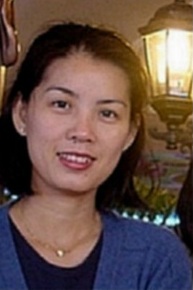 Dr. Madya Lee Yoot Khuan, received her BSc (First Honours) in Aeronautical Eng from Bristol University in 1983, MSc in Control Eng from Bradford University in 1990 and Phd in EE Eng (Biomedical) from Nottingham University, UK in 2007. She is an Assoc Prof at the Faculty of EE, Universiti Teknologi MARA. She has more than 120 technical publications in national and international conferences and journals. She is an Editor of Journal of Electrical and Electronic System Research. She serves as a reviewer for IEEE-EMBS, IEEE-FIE, EMBEC, Elsevier Editorial and referee for IEEE-EMBS. She has also been appointed as Technical Program Chair and National Advisory Committee of international conferences related to biomedical engineering. She is also a registered Research Investigator with National Medical Research Registry of Malaysia. One of her research products, an efficient web-based graphical viewing tool for telemedicine application won medals from 5 different categories (Medical, TeleCommunication, Computer Software, Engineering, Science) at INPEX of USA. Another of her research product, a new salivary base human stress biosensing wearable device, won a medal at IENA. A few of her papers also garnered awards of excellence.
Dr. Madya Lee Yoot Khuan, received her BSc (First Honours) in Aeronautical Eng from Bristol University in 1983, MSc in Control Eng from Bradford University in 1990 and Phd in EE Eng (Biomedical) from Nottingham University, UK in 2007. She is an Assoc Prof at the Faculty of EE, Universiti Teknologi MARA. She has more than 120 technical publications in national and international conferences and journals. She is an Editor of Journal of Electrical and Electronic System Research. She serves as a reviewer for IEEE-EMBS, IEEE-FIE, EMBEC, Elsevier Editorial and referee for IEEE-EMBS. She has also been appointed as Technical Program Chair and National Advisory Committee of international conferences related to biomedical engineering. She is also a registered Research Investigator with National Medical Research Registry of Malaysia. One of her research products, an efficient web-based graphical viewing tool for telemedicine application won medals from 5 different categories (Medical, TeleCommunication, Computer Software, Engineering, Science) at INPEX of USA. Another of her research product, a new salivary base human stress biosensing wearable device, won a medal at IENA. A few of her papers also garnered awards of excellence.
Her research experience includes analysis, compression and remote display of biomedical signals with infrequent short duration event; Classifying neonatal cry to determine the physiologic status of baby (asphyxia and hypothyroid) with SVM, PSO, BPSO and MLP; BCI for dyslexia children; Automation of an amperometric flow injection analysis system for measuring human stress; Development of polysilicon based microcantilever biosensor for human stress measurement; Development of ISFET biosensor for histamine; Salivary-based disease detection from Raman spectral.
Her research interests includes biomedical signal processing, biomedical event detection, brain computer interface, physiologic measurement and artificial intelligence, in particular their application to improving the quality of life of mankind, in particular of age less than 8 and more than 80, inspired by The Last Lecture by Prof Randy Pausch. She is a member of BEM, IET, IEEE and EMBS. She has served as the Executive Committee Member and is the Past Chair of IEEE-EMBS of Malaysia chapter. Under her leadership, the Chapter has just won the 2012 IEEE-EMBS Outstanding Chapter Award from 134 chapters worldwide and the 2012 Best Chapter Award from IEEE Malaysia Section. She has also been won the 2012 Best Volunteer Award from IEEE Malaysia Section. She is currently a member of the Executive Committee of IEEE Malaysia Section.
 Prof. Konstantina S. Nikita received the Diploma in electrical engineering (1986) and the Ph.D. degree (1990) from the National Technical University of Athens (NTUA), Greece. She then received the M.D. degree (1993) from the Medical School, University of Athens, Greece.
Prof. Konstantina S. Nikita received the Diploma in electrical engineering (1986) and the Ph.D. degree (1990) from the National Technical University of Athens (NTUA), Greece. She then received the M.D. degree (1993) from the Medical School, University of Athens, Greece.
From 1990 to 1996, she worked as a Researcher at the Institute of Communication and Computer Systems, NTUA. In 1996, she joined the School of Electrical and Computer Engineering, NTUA, as an Assistant Professor, and since 2005 she serves as a Professor, at the same School. Her current research interests include biomedical signal and image processing and analysis, biomedical informatics, simulation of physiological systems, medical imaging, biological effects and medical applications of radiofrequency electromagnetic fields. Dr. Nikita has authored or co-authored 160 papers in refereed international journals and chapters in books, and over 280 papers in international conference proceedings. She is author or co-author of two books (Simulation of Physiological Systems, Medical Imaging Systems) in Greek and co-editor of one book (Computational Electromagnetics: State of the Art and Future Trends) in English published by Springer. She holds two patents. She has been the technical manager of several European and National Research and Development projects in the field of biomedical engineering. She has been honorary chair/ chair/member of the program/organizing committee of more than 70 international conferences on the same fields (IEEE-IST, IEEE-BIBE, IEEE-ITAB, ICST-Mobihealth etc). She has served as keynote/invited speaker at several international conferences, symposia and workshops organized by NATO, WHO, ICNIRP, IEEE, URSI, COMCON, PIERS etc. She is member of the Editorial Board of the ΙΕΕΕ Transactions on Biomedical Engineering and guest editor of several international journals on biomedical engineering subjects (IEEE Transactions on Information Technology in Biomedicine, Computerized Medical Imaging and Graphics, IOP Measurement Science and Technology, etc). She has been the advisor of twenty completed Ph.D. theses, several of which have received various awards. She has served as external evaluator in numerous University promotion committees and in international and national committees for grant proposal applications.
Dr. Nikita has received various honors/awards, among which, the prestigious Bodossakis Foundation Academic Prize for exceptional achievements in “Theory and Applications of Information Technology in Medicine” (2003). She has been a member of the Board of Directors of the Hellenic National Academic Recognition and Information Center, a member of the Board of Directors of the Greek Atomic Energy Commission and a member of the National Council of Research and Technology. Dr. Nikita is a Senior member of the Institute of Electrical and Electronics Engineers (IEEE), a member of the Technical Chamber of Greece and a member of the Athens Medical Association. She is also the founding chair and ambassador of the ΙΕΕΕ-Engineering in Medicine and Biology Society, Greece chapter, vice chair of the IEEE Greece Section and deputy head of the School of Electrical and Computer Engineering of the NTUA.
 Dr. Julien Penders is Program Manager at the Holst Centre / IMEC, where he leads the activities on Body Area Networks. He is responsible for the development of integrated wearable health monitoring systems, development of embedded algorithms, and the evaluation of integrated prototypes in field studies. He has (co-) authored over 50 papers in the field of body area networks and autonomous wireless sensor networks, and is the author of two book chapters on the topic. He serves on the Technical Committee on Information Technology for Health (IEEE), on the Technical Program Committee for the Wireless Health conference and is associate editor for the IEEE EMBS conference. Julien was a 2004/2005 fellow of the Belgian American Educational Foundation. He holds a M.Sc. degree in Systems Engineering from University of Liege, Belgium (2004), and a M.Sc. degree in Biomedical Engineering from Boston University, MA (2006).
Dr. Julien Penders is Program Manager at the Holst Centre / IMEC, where he leads the activities on Body Area Networks. He is responsible for the development of integrated wearable health monitoring systems, development of embedded algorithms, and the evaluation of integrated prototypes in field studies. He has (co-) authored over 50 papers in the field of body area networks and autonomous wireless sensor networks, and is the author of two book chapters on the topic. He serves on the Technical Committee on Information Technology for Health (IEEE), on the Technical Program Committee for the Wireless Health conference and is associate editor for the IEEE EMBS conference. Julien was a 2004/2005 fellow of the Belgian American Educational Foundation. He holds a M.Sc. degree in Systems Engineering from University of Liege, Belgium (2004), and a M.Sc. degree in Biomedical Engineering from Boston University, MA (2006).
 Dr. Amnon Shabo (Shvo), works at IBM Research Lab in Haifa as a research staff member specializing in health informatics and heads the Healthcare & Life Sciences Standards Program in corporate IBM. He holds leading positions in HL7 (Health Level 7 - a major standards developing organization dedicated to health information).
Dr. Amnon Shabo (Shvo), works at IBM Research Lab in Haifa as a research staff member specializing in health informatics and heads the Healthcare & Life Sciences Standards Program in corporate IBM. He holds leading positions in HL7 (Health Level 7 - a major standards developing organization dedicated to health information).
- Co-chair, HL7 Clinical Genomics Work Group
- Past Co-chair, HL7 RIMBAA (RIM-based Application Architecture Work Group
- Co-editor, HL7 CDA (Clinical Document Architecture) Release 2 standard
- Co-editor, HL7 CDA CCD (Continuity of Care Document) Implementation Guide
- Co-editor, HL7 Family History Standard
- Primary Editor, CDA GTR (Genetic Testing Report) Implementation Guide.
At IBM Research, Amnon is a co-chair of the Medical Informatics Community. In the Haifa Research Lab, he has been coordinating the contribution of IBM to the Hypergenes project targeted at exploring the genetic background of essential hypertension (a study conducted by a consortium of about twenty European partners and funded by the European Union, see Hypergenes web site).
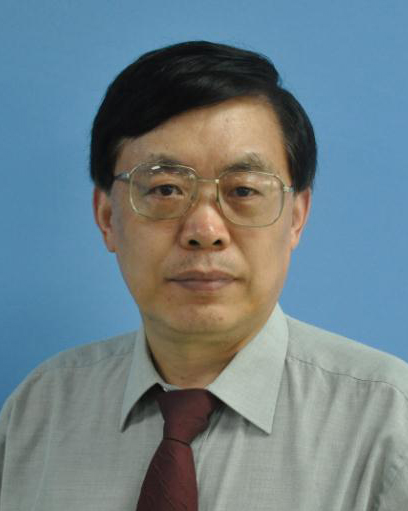 Prof. Yuan-Ting Zhang is currently the Director of Joint Research Center for Biomedical Engineering and Professor of Department of Electronic Engineering at the Chinese University of Hong Kong (CUHK). He serves concurrently the Director of the Key Lab for Health Informatics of the Chinese Academy of Sciences (HICAS) at the SIAT. He became the founding Head of Biomedical Engineering Division at the CUHK in Hong Kong and the founding Director of the SIAT Institute of Biomedical and Health Engineering of Chinese Academy of Sciences in Shenzhen in 2007.
Prof. Yuan-Ting Zhang is currently the Director of Joint Research Center for Biomedical Engineering and Professor of Department of Electronic Engineering at the Chinese University of Hong Kong (CUHK). He serves concurrently the Director of the Key Lab for Health Informatics of the Chinese Academy of Sciences (HICAS) at the SIAT. He became the founding Head of Biomedical Engineering Division at the CUHK in Hong Kong and the founding Director of the SIAT Institute of Biomedical and Health Engineering of Chinese Academy of Sciences in Shenzhen in 2007.
His research spans several fields including wearable medical devices, body sensor networks, bio-THz technologies, bio-modeling, neural engineering, cardiovascular health informatics, and e-p-m-Heath and telemedicine technologies, and is closely tied up to his teaching and publishing activities. He has authored/co-authored over 400 scientific publications and 11 book chapters, and filed 31 patents. His research work has won him and his team a number of Awards including the best journal paper awards and outstanding service award from IEEE-EMBS, and the Asia Pacific ICTA e-Health Grand Award.
Dr. Zhang provided extensively professional services of significant value to the local industries and global academic communities. He served as Associate Editor of IEEE Transactions on Biomedical Engineering, founding Associate Editor of IEEE Transactions on Mobile Computing, Guest Editor for IEEE Transactions on Information Technology in Biomedicine, and Guest Editor for IEEE Communication Magazine. He was previously AdCom member and the Vice-President of the IEEE-EMBS. He served as the Technical Program Chair and the General Conference Chair of the 20th and 27th IEEE-EMBS Annual International Conferences in 1998 and 2005, respectively. He was a member of IEEE Fellow Elevation Committee and the Award Committee for IEEE Medal on Innovations in Healthcare Technology.
Dr. Zhang serves currently on IAMBE Fellow Membership Committee, IEEE-EMBS Standard Committee, HK-ITC Projects Assessment Panel, and Dr. Zhang also serves Editorial Board Member for the Book Series of Biomedical Engineering published by IEEE Press and Willey, Chair of working group for developing IEEE standard on wearable cuffless blood pressure measuring devices, the International Committee Chair of the 35th IEEE-EMBS Annual Conference in Japan, and Editor-in-Chief of IEEE Transactions on Information Technology in Biomedicine (which will be renamed as IEEE Journal of Biomedical and Health Informatics (J-BHI) starting from Jan. 2013).
Dr. Zhang holds the fellowships from the International Academy of Medical and Biological Engineering (IAMBE), Institute of Electrical and Electronics Engineers (IEEE), and the American Institute of Medical and Biological Engineering (AIMBE) in recognition of his outstanding contributions to the development of wearable medical devices and mobile health technologies.
Dr. Zhang completed his undergraduate and Master Degree studies in 1976 and 1981, respectively, in telecommunication from Department of Electronics of Shandong University and was conferred a Ph.D. in the area of Biomedical Engineering from the Department of Electrical Engineering at the University of New Brunswick in 1990.




Komentáre
Pre pridanie príspevku sa musíte prihlásiť alebo registrovať.